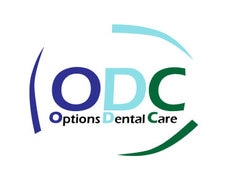|
If your last dental visit was over about 2 years, the answer is quite obviously no.
0 Comments
As defined by the Oxford Dictionary, Care is:
1 The provision of what is necessary for the health, welfare, maintenance, and protection of someone or something: 2 Serious attention or consideration applied to doing something correctly or to avoid damage or risk: Let's analyse this definition and apply this more specifically to Dental Care - What is NECESSARY for the health, welfare, maintenance and protection someone or something?
This list is not comprehensive but is just intended as a starting point to help define the concept of care as it relates to dentistry. Sometimes what is best for an individual tooth or problem may not be the best thing for the patient. Even though we are University Qualified Professionals™ and Know What's Best For You™, we actually can't apply all these 'mad skillz' to your case as until we gather information, we are pretty clueless as to what is needed for the best outcome for each individual case. Please note that in the definition of care, the term 'necessary' is used. So by definition everything that is not necessary such as tooth whitening, cosmetic veneers etc. is excluded. This is not to say that these are unimportant aspects of dentistry. It is just that they are separate from the concept of Care which logically should be address first as it deals with health, welfare, maintenance and protection. How do we provide this? By starting the care and management of the patient properly with knowledge prior to engaging in treatment. This actually takes quite a lot of time if done correctly! From a treatment perspective, it might only be about 30 minutes of examinations and treatment. However the typical actual time it takes on new patients vary from 45mins - 90 minutes depending on the level of complexity of the presenting issues and the rate at which you can absorb the information and ask the relevant questions. Care is an ongoing provision that is necessary. It very distinct from the 'one off get you out of trouble dental visits' that most people experience. These types of visits can often be avoided with proper dental care in this day and age. Care phases should be clearly separated from treatment phases in order to provide what is necessary rather than what just seems like a good idea at the time. Hopefully you have already read the main care page and are familiar with the various phases of dentistry. Is serious attention or consideration being applied to doing something correctly? Are your dental checkups getting done correctly? How much do you really understand of what is happening in your mouth? If the answer is not much, then revisit your dentist and get a proper understanding. If your treatment and checkups are happening at the same time regularly, how much attention do you think can be applied to both? As a general rule in medicine, surgery (treatment visits) is usually separated from the diagnostic visits (think how most surgeons operate - you do not waltz into a heart surgeon's office and tell them you need a heart transplant and have it done same day), however dentists because they are University Qualified Professionals™ seem to be able to combine the two on a regular basis. Luckily the consequence is usually just a few problems going unnoticed which become apparent later as they get worse. Please ensure that your dental checkups are getting done correctly as this is usually the only chance you will have to plan your management needs. Without serious attention or consideration being applied to getting this done correctly, it is near impossible to move onto the next phases of care. Is there any attention or consideration given to avoid damage or risk? Iatrogenic damage must be considered during the treatment of all patients. This topic would probably require its own blog post. The easy layman's way to thing about this is 'What sort of additional damage is the fixer doing either intentionally or unintentionally in the attempt to fix the perceived problem'. 'Surgery is the option of last resort' - it might sound a bit cliched and should definitely not be taken as a life defining statement, but this statement does highlight iatrogenic risks involved in surgery. Problem with dentistry - most procedures are some form of surgery and so we (the profession) sometimes tend to get a bit blasé about drilling and removing teeth as we do it all day long. With dentistry it can be difficult to find the correct balance between performing procedures and monitoring cases as even teeth do have a limited capacity to remineralise. It is all very dependent on the risk factors present in each case and this becomes more apparent with familiarity of the patient over time. From a patient perspective, ultimately you are in control of what procedures you allow the dentist to perform. My advice - only proceed with your dental treatment (remember it is a form of surgery!) when you truly understand what you are getting done and hope that your dentist drills conservatively. It is not that difficult to accidentally expose a nerve with a diamond bit spinning at 250,000+ rpm and a patient that wiggles. According to my surgery statistics only about 3%-5% of all teeth actually treated seem to require any form of endodontic (root canal) treatment. This was much higher in my earlier years and in the starting years of all the associate dentists I have had over the years. The longer they stay in the practice the lower the 'nerve hit' rate it seems. |
AuthorDr Gerald Loh ArchivesCategories |
HoursWeekdays: 9am - 6pm
Closed Wednesdays and Weekends |
Telephone |
AddressShop 5, 334-336 Camden Valley Way,
Narellan, NSW 2567 |

 RSS Feed
RSS Feed